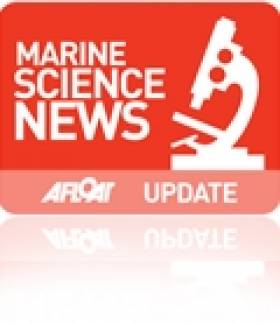Displaying items by tag: oil spills
Irish Coast Guard’s New Portal Will Support Planning for Oil Spills
The Irish Coast Guard has launched its new digital portal which will support contingency planning for oil spills and improve preparedness and response to pollution incidents.
In line with the Government’s Digital Agenda, the Oil/HNS Contingency Plan Approval Portal aims to streamline interaction between ports, local authorities and offshore operators with the coastguard and Department of Transport.
Irish Coast Guard director Eugene Clonan said the portal “will allow information to be readily available to stakeholders and enable further coordination between the Irish Coast Guard, Government and non-government entities”.
Capt Hugh Conlon, who tested the system ahead of its launch at Shannon Foynes Port, said it “ensures all plans submitted follow a pre-set layout for ease in timely approval. The completed plan will knit with and develop on the National Maritime Oil/HNS Contingency Plan and ensure local response is compatible.
“The portal will also ensure that local plans are easily available to the Irish Coast Guard to monitor actions during an incident,” he added.
Wildlife Groups Pledge Union With Oil Spill Response Plan
#MARINE WILDLIFE - The Evening Herald has highlighted the work of a new union of wildlife protection groups which is training volunteers to act the event of serious environmental threats to Ireland's sea bird population.
Wildlife rescue volunteer Pauline Beades from Garristown in north Co Dublin has been working with Ireland's animal groups to change the official approach to wildlife - particularly birds - that get caught in oil spills.
The Irish Seal Sanctuary, Birdwatch Ireland, the ISPCA, the Irish Whale and Dolphin Group (IWDG), Coastwatch and Irish Wildlife Trust have written a joint "letter of comfort" for the Irish Coast Guard, which is the State body charged with dealing with coastal oil spills.
The groups have pledged to work together in the event of any oil spill that involves a threat to marine wildlife.
Their response plan involves an initial wave of volunteers walking beaches to gather affected animals and providing first aid, followed by transfering them to veterinarians in specialised field hospitals, as well as facilities for longer-term care.
Recently Beades helped train volunteers in Limerick, who also attended lectures and demonstrations from visiting wildlife rescue experts from Europe to prepare for any potential sea-borne wildlife emergency.
Marine Institute to host ARCOPOL Oil Spill Modelling Workshop
The Marine Institute will be hosting an ARCOPOL oil spill modelling workshop in Galway on Tuesday 13 September.
This one-day workshop is an opportunity to discuss the development of common procedures, techniques and decision tools for the management of response to oil spills and other hazardous and noxious substances.
The event is being held at the Marine Institute, Rinville, Oranmore, Co Galway under the auspices of the EU Interreg Atlantic Area Project ARCOPOL, in which the Marine Institute is a participant.
For detailed information see the agenda which is available to download HERE.
All relevant professionals are invited; attendance is free but limited on a first-come-first served basis. Registration is mandatory by e-mail to [email protected].

























































